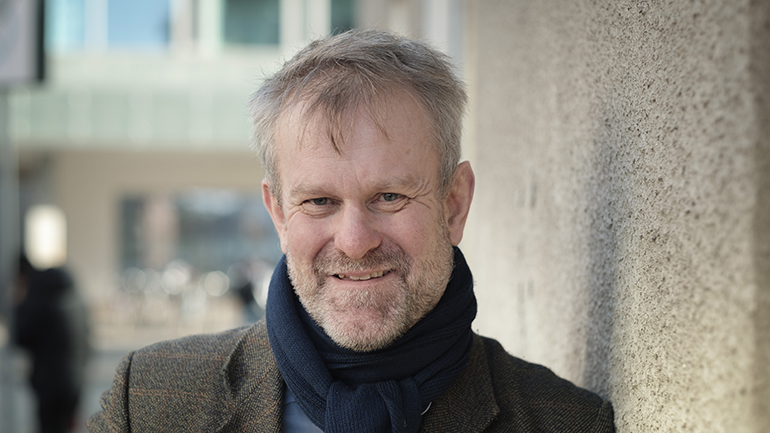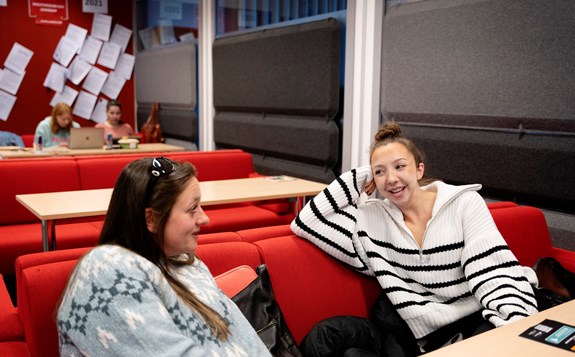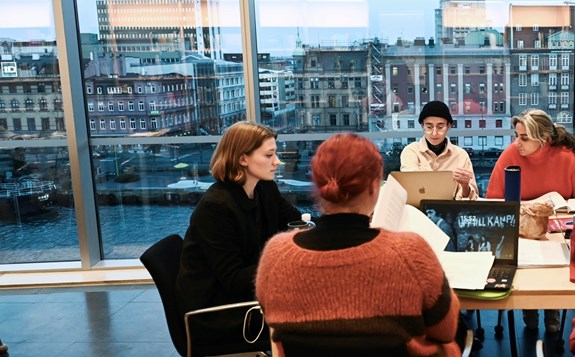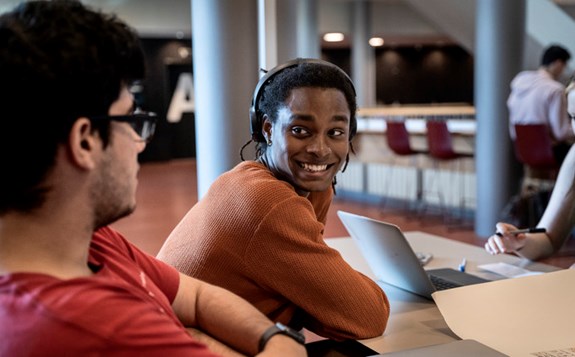We use cookies on this website. Cookies help us deliver the best experience on our website. Read about cookies.
-
- Education
- Education
- Programmes and courses
- Applications and admissions
- Tuition fees
- Scholarships
- Exchange studies at Malmö University
- Study Guidance
-
- After admission
- After admission
- Moving to Malmö
- Pre-orientation
- Arrival guide
-
- About studies at Malmö University
- About studies at Malmö University
- Why choose Malmö University
- Understanding university studies
- Connect with our students
On the page -
- Research
- Research
-
- Doctoral studies
- Doctoral studies
- Doctoral courses
-
- Doctoral schools
- Doctoral schools
- Adaptation of urban space through sustainable regeneration
- ComBine
- Culturally Empowering Education through Language and Literature
- Education, Learning and Globalisation
- Finding ways in a time of great future challenges (FinnFram)
- Swedish National Graduate School in Science and Technology Education Research
- Learning in Multicultural Societal Contexts
- Pedagogy and Vocational Skills
- Relevancing Mathematics and Science Education (RelMaS)
- Sustainable Movement Education
- The National Research School for Professionals in Social Services
- Research subjects
-
- Research centres
- Research centres
- Biofilms Research Centre for Biointerfaces
- Citizen Health
- Imagining and Co-Creating Futures
- Institute for Urban Research
- Malmö Institute for Migration Studies
- Literacy and Inclusive Teaching
- Centre for Work Life Studies
- Sustainable Digitalisation Research Centre
- Centre for Sexology and Sexuality Studies
-
- Research publications
- Research publications
- Search for research publications in Diva
- Malmö University Press
- Research events
- Participate in a research study
- Coffee Break Quiz
On the page -
- Collaboration and Innovation
- Collaboration and Innovation
-
- Levels of collaboration
- Levels of collaboration
-
- Local collaboration
- Local collaboration
- Muvah
- Regional collaboration
- National collaboration
-
- International collaboration
- International collaboration
- UNIC
- Innovation
- Collaboration with students
-
- Collaborate with researchers
- Collaborate with researchers
- Labs and facilities
- Culture collaboration
- Support Malmö University
- Alumni & Friends
On the page -
- About us
- About us
-
- Faculties and departments
- Faculties and departments
-
- Faculty of Culture and Society
- Faculty of Culture and Society
- Department of Global Political Studies
- School of Arts and Communication
- Department of Urban Studies
-
- Faculty of Education and Society
- Faculty of Education and Society
- Department of Childhood, Education and Society
- Department of Sports Sciences
- Department of Culture, Languages and Media
- Department of Natural Science, Mathematics and Society
- Department of Society, Culture and Identity
- Department of School Development and Leadership
- The Centre for Teaching and Learning (CAKL)
-
- Faculty of Technology and Society
- Faculty of Technology and Society
- Department of Computer Science and Media Technology
- Department of Materials Science and Applied Mathematics
- Faculty of Odontology
- University Dental Clinic
-
- Find and contact Malmö University
- Find and contact Malmö University
- Visit Malmö University
-
- News and press
- News and press
- Graphic manual
- Map of the buildings (Google Maps)
- Merchandise
- Supplier information and invoice management
- Whistleblowing
- We will help you with your questions
- Management and decision-making paths
-
- Malmö University's strategy 2030
- Malmö University's strategy 2030
- Sustainability
- Widened recruitment and participation
- Quality assurance work at the University
-
- Malmö Academic Choir and Orchestra
- Malmö Academic Choir and Orchestra
- Student work – video pieces
-
- Annual Academic Celebration
- Annual Academic Celebration
- Academic traditions
- Meet our new professors
- Meet our new doctors
- Honorary doctors
-
- The University in a troubled world
- The University in a troubled world
- Campus total defence
On the page
Education and teaching
education or teaching
Are you interested in the role of education in society and want to deepen your understanding of educational research? Or do you want to increase your own teaching competence with a scholarly approach? Study a master's programmes in education and teaching. Scholarships are available for international students. Applications are open until 15 January 2026.
Master's programmes
-
Programme
 Programme, master’s level | 120 credits
Programme, master’s level | 120 creditsEducation: Educational Theory, Master's Programme (Two-Year)
31 August 2026 - 4 June 2028Malmö | daytime | 100% -
Programme
 Programme, master’s level | 120 credits
Programme, master’s level | 120 creditsEnglish and Education: Master's Programme (Two-Year)
31 August 2026 - 4 June 2028Malmö | daytime | 100% -
Programme
 Programme, master’s level | 60 credits
Programme, master’s level | 60 creditsSport Sciences: Sport in Society, Master's Programme (One-Year)
31 August 2026 - 6 June 2027Malmö | daytime | 100% -
Programme
 Programme, master’s level | 120 credits
Programme, master’s level | 120 creditsSport Sciences: Sport in Society, Master's Programme (Two-Year)
31 August 2026 - 4 June 2028Malmö | daytime | 100% -
Programme
 Programme, master’s level | 60 credits
Programme, master’s level | 60 creditsTeaching and Learning in Higher Education, Master's Programme (One -Year)
31 August 2026 - 4 June 2028Distance | mixed hours | 50% -
Programme
 Programme, master’s level | 120 credits
Programme, master’s level | 120 creditsTeaching and Learning in Higher Education, Master's Programme (Two -Year)
31 August 2026 - 9 June 2030Distance | mixed hours | 50%
How to apply
Apply no later than 15 January. Follow our step-by-step guide on how to apply.
Career
A master’s level in education and teaching allows you to pursue doctoral studies leading to careers within education or research. With a master’s degree in English and education, you are attractive to employers looking for a highly qualified individual with expert knowledge in language education.
The campus and the city of Malmö provide a global learning environment. You are geographically perfectly positioned to make Malmö your gateway to Europe and its international job market. Malmö is one of Sweden’s fastest-growing metropolitan centres and has a lively start-up scene for the entrepreneurially driven.
Newsletter for future students
Join the newsletter and get updates on application key dates, programmes, courses, and much more.
Testimonials
Education: Educational Theory, master's programme
Education: Educational Theory, master's programme
https://youtube.com/embed/XaSUR-cUUEU?enablejsapi=1&rel=0&showinfo=1&controls=1
Teaching and Learning in Higher Education, one- and two-year master’s programme
Teaching and Learning in Higher Education, one- and two-year master’s programme

English and Education, master's programme
Björn Sundmark, Professor of English Literature, outlines the valuable knowledge and experience students gain during the master's degree programme ; explaining why language and learning skills are needed in working life.

English and Education, master's programme
Björn Sundmark, Professor of English Literature, outlines the valuable knowledge and experience students gain during the master's degree programme ; explaining why language and learning skills are needed in working life.
How does the master's programme prepare students for working life?
In the job market, there’s a great need for people who are proficient in languages. If you have knowledge of languages, you have the potential to work in many different professions. Knowledge and learning in languages are beneficial in most industries, including working as a communicator, human resource officer, teacher, or business leader.
Education in languages can create new opportunities in the international labour market. The programme also gives students the chance to proceed to third-cycle education. Today, there’s a great need for humanities researchers and social scientists whose research is focused on education and didactics.
What are the main things that students will learn during the programme?
Students will gain subject knowledge of English alongside a specialisation in education. You will acquire advanced-level knowledge in literary studies, foreign language learning, grammar, linguistics, sociolinguistics, language development, and cultural studies. Through the education, students receive a didactic insight into language and literature.
What makes the programme unique?
The master's programme is unique in that students are offered advanced studies and specialisation in both English and education. Malmö University provides an opportunity for international and Swedish students to study a master’s degree that is taught entirely in English. The programme has an international character, with students from several countries bringing various experiences and educational backgrounds.
Why are Malmö University and Sweden good choices?
Internationally, there is a strong interest in Sweden’s educational system. Malmö University has the largest teacher training programme in the country and a great amount of experience in delivering high-quality education. Teachers at the Faculty of Education and Society are experts in their subjects. Malmö is a multicultural, multilingual city, where most people speak English.
What types of academic backgrounds are appropriate for the programme?
The programme is aimed at people with previous education in teaching as well as those with other academic backgrounds, for example in social sciences or humanities. Students with previous teacher education can deepen and broaden that education and qualify to teach English.
Malmö University
Malmö University is a young, urban and innovative university located in the southernmost region of Sweden. The University has around 24,000 full-time students and offers English-taught programmes at both bachelor's and master's levels. The University’s research profile is characterised by global engagement, community involvement, and a multidisciplinary and challenge-based approach.
Malmö is a vibrant city with a young and diverse population of 350,000. It is an extremely bike-friendly city. Located in the Öresund region, Malmö lies just a short train journey from the Danish capital city, Copenhagen. The region is home to about four million people and offers a buoyant job market with great international career opportunities.





